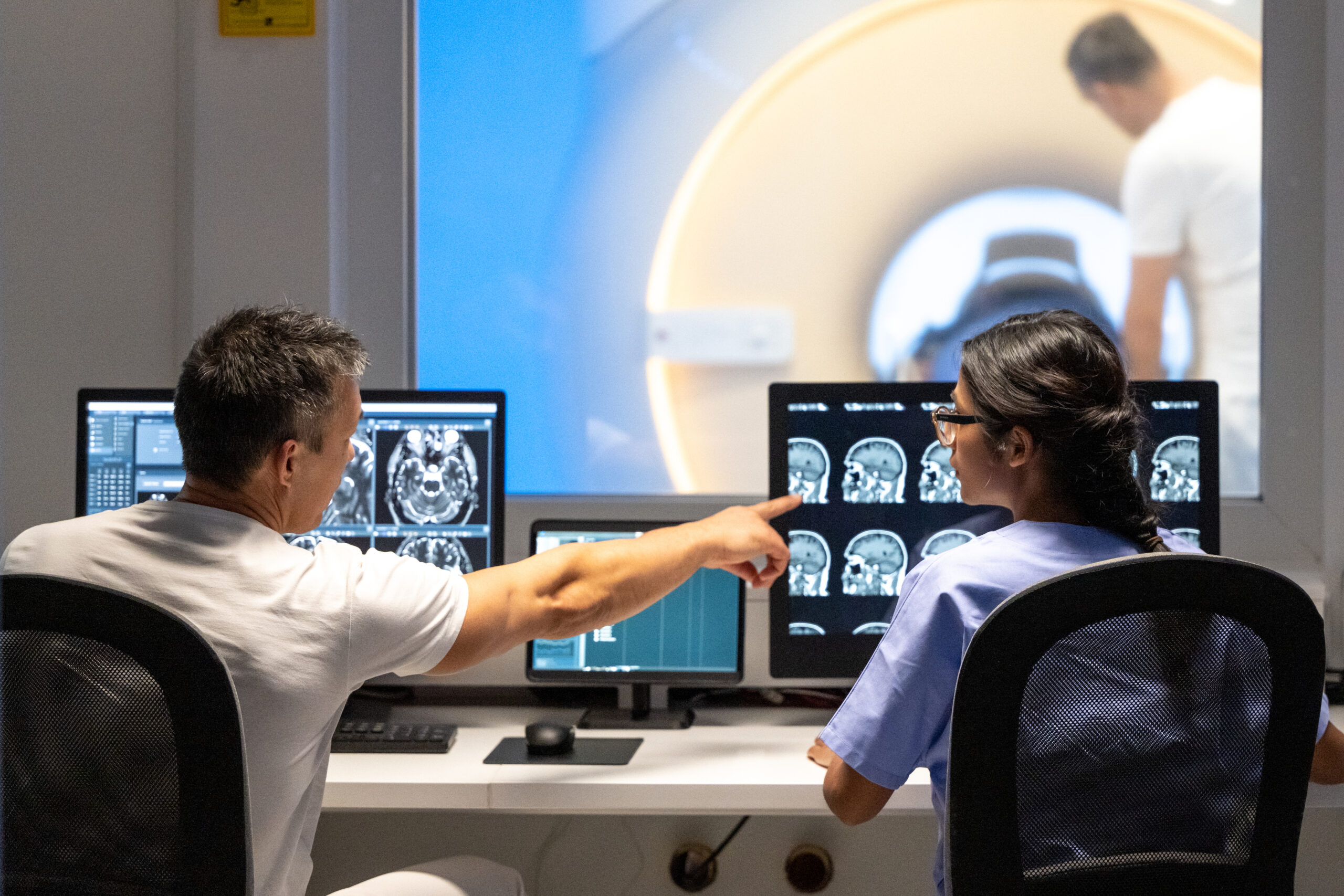
STAGE, MRI Access and the Cost of Inpatient Stays
By: Karen Holzberger, President & CEO of SpinTech MRI
Longer inpatient stays caused by delayed access to MRI are a long-standing and costly issue for hospital systems. It’s been a problem that has resisted solution because it seemingly was defined by limitations imposed by the physics of MRI. Accordingly, efforts to overcome those limitations have focused on improving the speed and efficiency of imaging department processes, but not on using MRI physics to shorten exam times.
That’s a big reason why a growing number of health systems are now exploring how our STAGE software platform can help them reduce MRI backlogs and inpatient stays by shortening brain scan times by 30%. STAGE uses advanced MRI physics proven through years of use in neuroradiology research environments to improve image clarity and contrast and signal-to-noise ratio. STAGE also delivers practical access to quantitative maps, such as QSM and T1 Maps, for better detection of disease biomarkers for Parkinson’s, dementia, Multiple Sclerosis, stroke, and other neurological conditions.
A persistent, costly and growing challenge
The negative effects of limited MRI access on care, costs and outcomes are increasing along with efforts to find scalable solutions. Demand is growing to serve an aging population and support earlier diagnosis and treatment. At the same time, clinical and technical staff shortages have worsened as health systems struggle with rising costs and reduced reimbursements.
In the U.S., a Kaiser Family Foundation study found that average health system expenses per inpatient day in 2021 were $2,881, with a high of $4,181 in California and a low of $1,305 in Mississippi. Medicare or private insurance may cover about half of daily costs, leaving the balance to be paid by the patient or the hospital. When multiplied by a given number of patients and inpatient days, the cost of simply waiting for an open MRI exam slot is difficult to justify or maintain.
Even so, the clinical importance of MRI is clear. For example, a study at a 750-bed Australian hospital published in 2021 BMJ Neurology found that the average inpatient wait time for brain MRI was 2.1 days. Like most routine brain MRI exams, the goal was differential diagnosis, in this case, exclusion of stroke indications not detected with CT. The study reported that 30% of exams led to same-day discharge and that findings changed care management in 88% of patients.
Studies in the U.S. have explored cross-disciplinary approaches to address much longer inpatient delays by improving MRI processes. In one, published in Radiographics in January 2021, a multidisciplinary team at a 625,000-member health system initiated wide-ranging process improvements involving 26 radiologists and 226 technologists and support staff at 28 different outpatient and urgent care imaging locations.
The initiative succeeded in reducing the average wait for MRI access by nearly 60%, from 14.2 days to 5.8 days. The authors acknowledged other imaging practices may not have the resources needed to undertake such a large-scale effort. But they added that a commitment to clear goals and a reliance on a radiology team’s experiences and ideas for improvement can produce comparable results elsewhere.
Even a relatively small reduction in the length of stay can produce substantial benefits. In a 2019 study reported in Radiographics, a project to improve MRI processes and reduce inpatient stays produced a 20% reduction in wait times. Conducted at the 700-bed University of Colorado Hospital in Aurora, the study noted that an analysis of hospitalization data showed that for every 0.1-day reduction in the average length of stay produced a gain of seven open hospital beds.
STAGE: amplifying process improvement benefits
As we mentioned above, those and other studies did not examine how the benefits could be amplified by shorter brain MRI acquisition times. While AI image reconstruction models have demonstrated potential for shortening exams by subsampling data, the technology has not sufficiently matured for clinical deployment at scale especially in neuroimaging. More importantly, no commercial solutions before STAGE have harnessed the power of MRI physics to shorten scan times while improving image clarity and contrast.
STAGE testing on 6 different 1.6T and 3T MRI systems at a busy U.S. health system with high neuroradiology volumes showed that time savings created 3 to 4 new scanning slots per scanner per day. When combined with process improvement like those described above, STAGE can play an essential role in reducing the burdens of longer MRI-related inpatient stays.
We invite you to learn more about STAGE by visiting us at booth 2808 at RSNA 2023. You can also contact us to arrange a consultation, or visit our website to review the results of STAGE testing or watch a recent Imaging Wire interview with SpinTech MRI CEO Karen Holzberger and neuroradiologist Dr. James Backstrom, MD.

